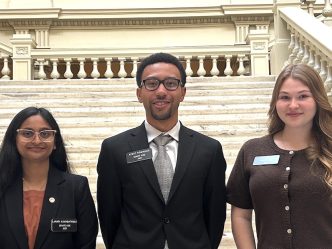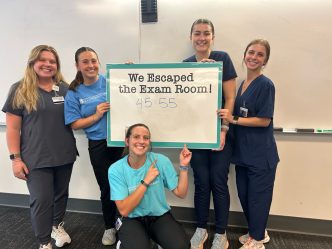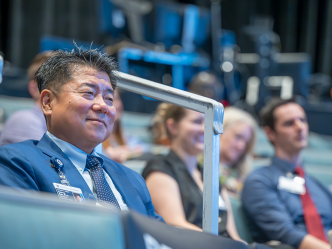Now that generative artificial intelligence technology has become common, it is important for educators to discuss how to use these tools in the classroom. To begin these conversations Pamplin College of Arts, Humanities and Social Sciences, including its Center for Writing Excellence, and the Center for Instructional Innovation are partnering to host AI Week.
AI Week offers four different virtual sessions Aug. 7-9 exploring the opportunities and challenges of teaching with generative artificial intelligence. The sessions are “Ethics and Generative AI in the College Classroom,” “Teaching Writing Well in the Age of AI,” “Using ChatGPT in Course Design” and “When AI Isn’t Right for Your Class: The Microwave Model.”
These sessions are designed to jumpstart university-wide conversations about how AI is used in higher education, with Pamplin College faculty and the CII’s instructional development team leading the way.
“Our goal at the Center for Writing Excellence was to create a space where faculty and staff with different backgrounds and expertise could share their thoughts because generative AI is new,” said Candis Bond, PhD, director of the Center for Writing Excellence. “Let’s hear different perspectives, let’s give faculty some tools and resources so they can make more informed decisions about how this may affect their teaching and how students are using AI as well.”
“It’s a new place to go as far as a faculty member designing a course. You still need to use what you know to prompt it and to refine it, but it will save you time, and I think no matter who you are, saving time is still valuable.”
Andrew Everett, instructional developer, Center for Instructional Innovation
With Chat GPT and other AI tools being so new, Bond feels it’s important to start these discussions now. This way both faculty and students will be on the same page when it comes to the best practices with using AI in their work. The CWE will also share AI teaching resources that are available on its Writing Across the Curriculum and in the Disciplines webpage.
Students have already been using the tools at their disposal, and James Garner, PhD, associate director of the Center for Writing Excellence, added these sessions can give the faculty a better feel for the use of AI.
“One of the things I hope we can do with this series is give faculty who may not know a lot about it a better understanding of what’s actually going on,” said Garner.
While faculty might be focusing on students’ use of ChatGPT and other AI services, they can also benefit from thinking about how they can engage with this technology in useful ways. That includes using AI technology to support course design.
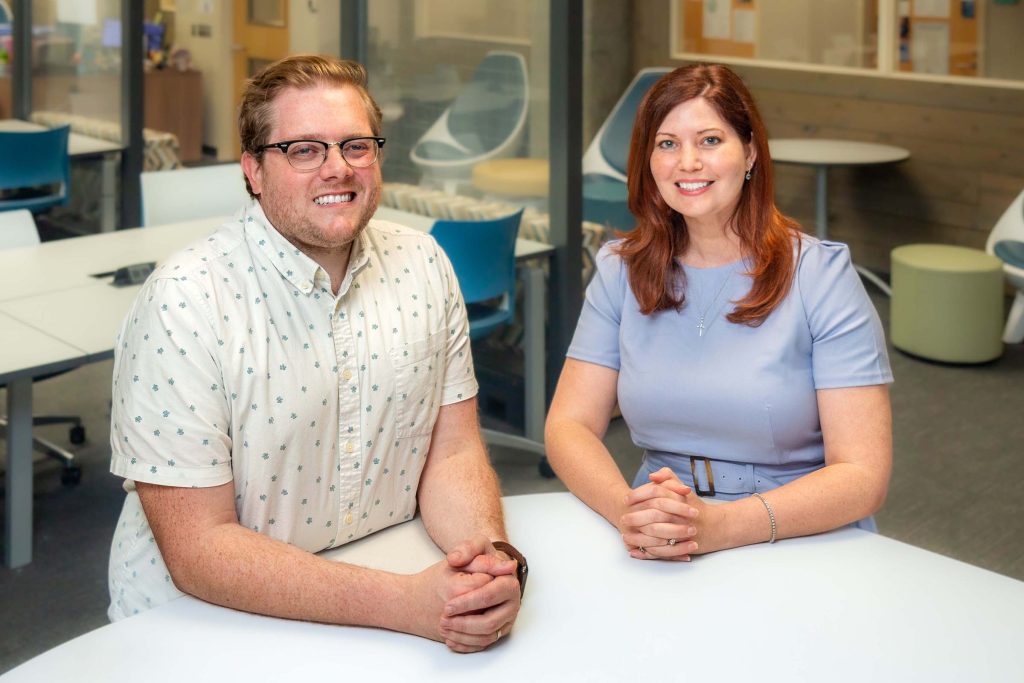
Arthur Takahashi and Andrew Everett are instructional developers with the Center for Instructional Innovation and are teaching an American government class this fall. After getting permission from their program director and chair of the Department of Social Sciences, they used AI to design class discussion topics they will use.
It saved them time and alleviated some of the stress that can accompany coming up with the topics.
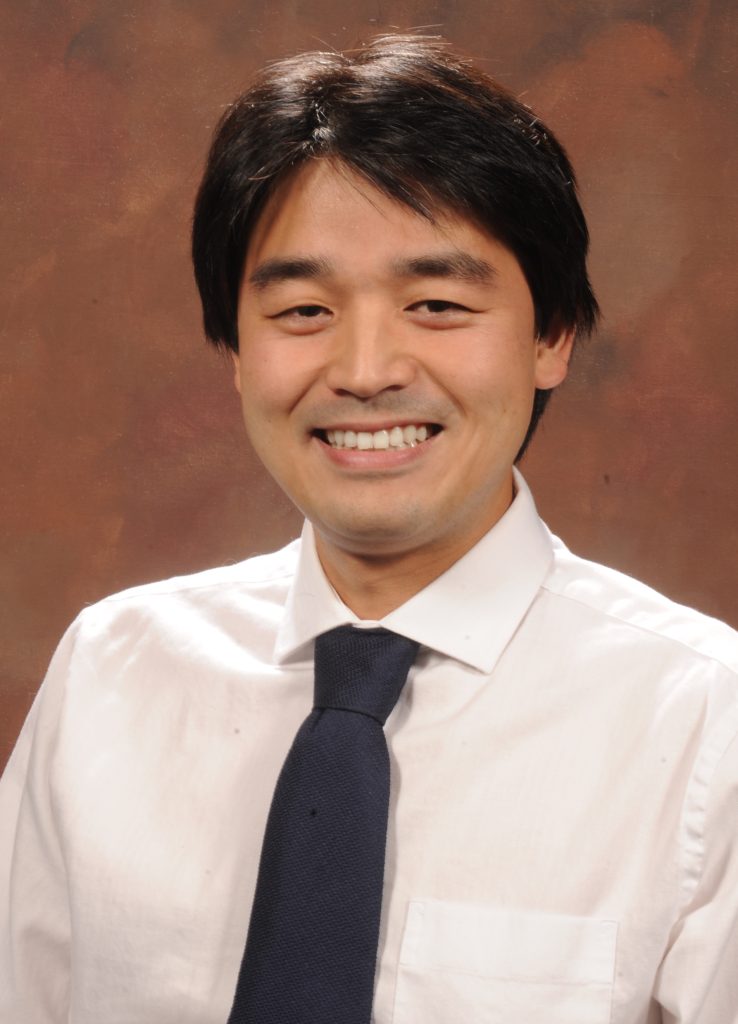
“I was struggling with this one activity,” said Takahashi. “I was like, ‘Let me throw this into ChatGPT.’ I gave it a very good prompt, specifically telling it that I’m looking for this type of question, and here’s the topic, go and generate it for me. And I’m not joking when I say it was done in one minute. I had to go back to change a few things, but I saw how fast it produced a really good question and discussion prompt for me.”
Generative AI also helped Takahashi and Everett create an outline of the course they will be teaching. But Everett said faculty still needs in-depth understanding of their subject matter to utilize AI tools to their fullest potential.
“It’s a new place to go as far as a faculty member designing a course. You still need to use what you know to prompt it and to refine it, but it will save you time and I think no matter who you are, saving time is still valuable,” said Everett.
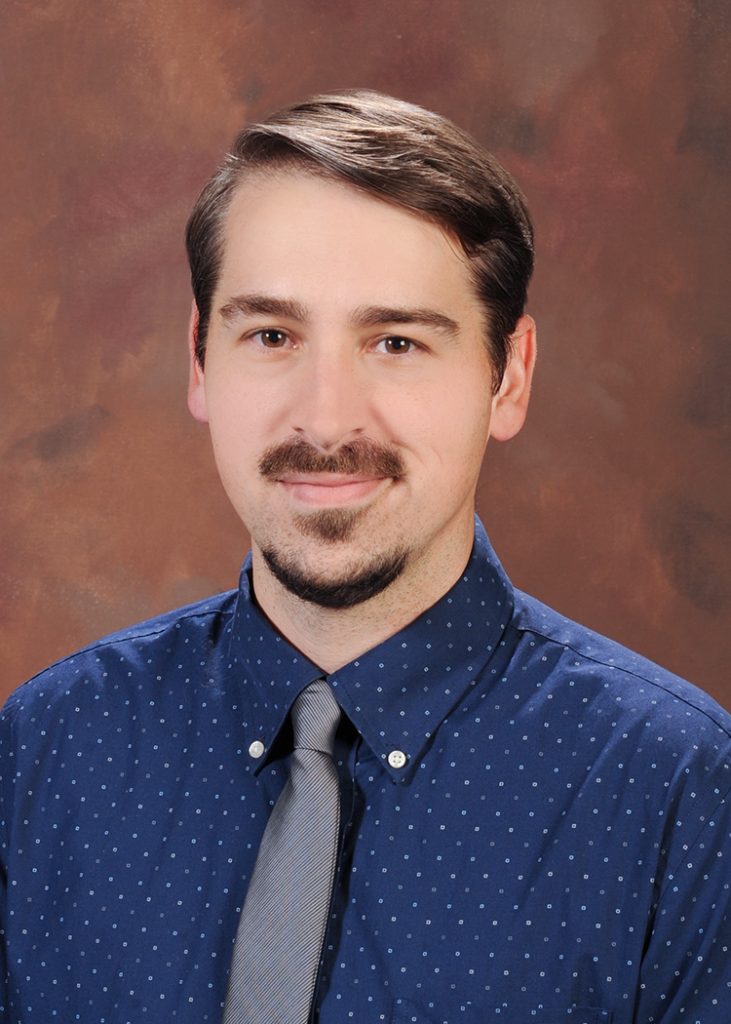
He added that Augusta University has never really shied away from innovation as a tool, but being innovative requires trust and appropriate use of tools like AI.
Since AI in education is still relatively new, there will be challenges and nuances to work through. Both Bond and Gardner agree that having conversations and being transparent when using AI tools, will create a better relationship between faculty and students.
“I know the big question a lot of educators are worried about is around plagiarism. The big thing ethically with that is we’re going to have to rethink how this fits into the ways we even think about plagiarism, and what plagiarism is. It’s going to look a lot different in every discipline and these are the conversations that are being hashed out,” added Garner.
Pamplin College has collectively been having discussions about AI since the fall. In the spring semester, the Pamplin Pedagogy and Instructional Committee organized a session that brought in not only faculty who teach writing, but also faculty from music and art, to get their take on the potential and challenges of AI in education. Having these ongoing discussions will only make the learning experience better for everyone.
“We hope that this is just the beginning of what Augusta University offers related to AI. We hope to continue to develop resources in the Center for Writing Excellence and we hope that the way AI Week is structured with panels from different units and a variety of people inspires people to continue these conversations within their own units, departments and colleges,” said Bond.
 Augusta University
Augusta University

